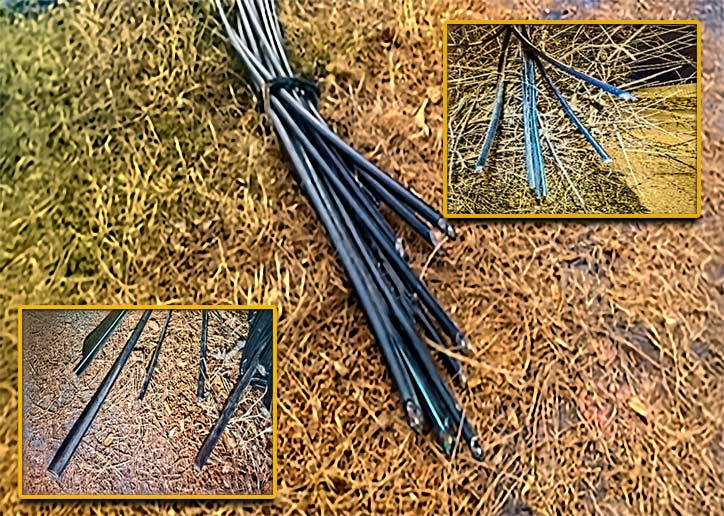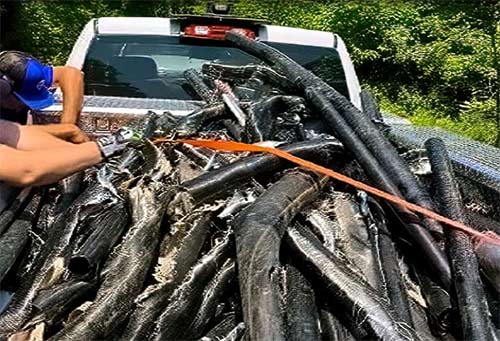
Although Charter is calling these fiber cuts to their infrastructure “domestic terrorism” to highlight their severity and public safety risks, federal law requires proof of intent to intimidate or disrupt government or civilians for such charges—making the label a strategic policy push rather than a legal classification, for now. However, if caught, perpetrators can still face serious felony charges under state or federal critical infrastructure laws, with penalties that may include significant prison time. (Photos: Charter Communications)
A disturbing surge in deliberate attacks on the nation’s communications infrastructure is being likened to acts of domestic terrorism, with potentially life-threatening consequences.
Charter Communications reported on Monday that its Spectrum network in Missouri has experienced a 200% year-over-year increase in felony attacks through July 2025. These disruptions sever vital connectivity for homes, businesses, and critical emergency services.

Charter’s fiber cuts reflect a broader national issue, highlighted in a recent report backed by telecom groups including NCTA, CTIA, USTelecom, NTCA, and WIA, which documented nearly 6,000 intentional theft and vandalism incidents targeting communications infrastructure in just six months.
“These felony, criminal attacks cause outages that go far beyond the inconvenience of lost internet,” said Tom Monaghan, Executive Vice President of Field Operations for Charter. “The impact is that of domestic terrorism, cutting off access to critical services, preventing vital communications during emergencies, and creating a persistent threat to families and businesses. This criminal activity must not be allowed to continue.”
The damage is staggering: 148 outages in Missouri alone this year have impacted 911 systems, emergency dispatch, police and fire departments, federal agencies, hospitals, schools, financial institutions, and mobile networks—many of which rely on Spectrum fiber to maintain connectivity and operational redundancy.
The scale and sophistication of the attacks mirror an incident on June 15 in Van Nuys, California, which Charter also labeled an act of domestic terrorism due to the targeted cuts and widespread consequences for public safety.
“These are not random acts of vandalism,” said FBI Special Agent in Charge Chris Crocker of the St. Louis Field Office. “They are calculated attacks on infrastructure that disrupt emergency services and create potentially life-threatening situations. We urge the public to remain vigilant and report suspicious activity to law enforcement.”
The crisis isn’t limited to Missouri. Between June and December 2024, the telecommunications industry documented nearly 6,000 intentional attacks on critical communications infrastructure across the country. These include fiber cuts, arson, sabotage, and other forms of interference with telecom assets.
In response to the growing threat, 28 states—including Missouri—have enacted legislation classifying attacks on critical communications infrastructure as felony crimes, with 11 states adopting new laws in 2025 alone. However, Spectrum and other industry leaders emphasize that more needs to be done: federal legislation is urgently required to establish uniform felony penalties for such crimes nationwide.
“Stronger laws and full prosecution of offenders are critical to deterring these attacks,” Monaghan said. “We also need the public’s help in stopping this trend before more lives are put at risk.”
To that end, Spectrum is offering a reward of up to $25,000 for information that leads to the arrest of individuals responsible for these attacks. Anyone with tips is encouraged to call 833-404-TIPS (8477) or contact local authorities.

















